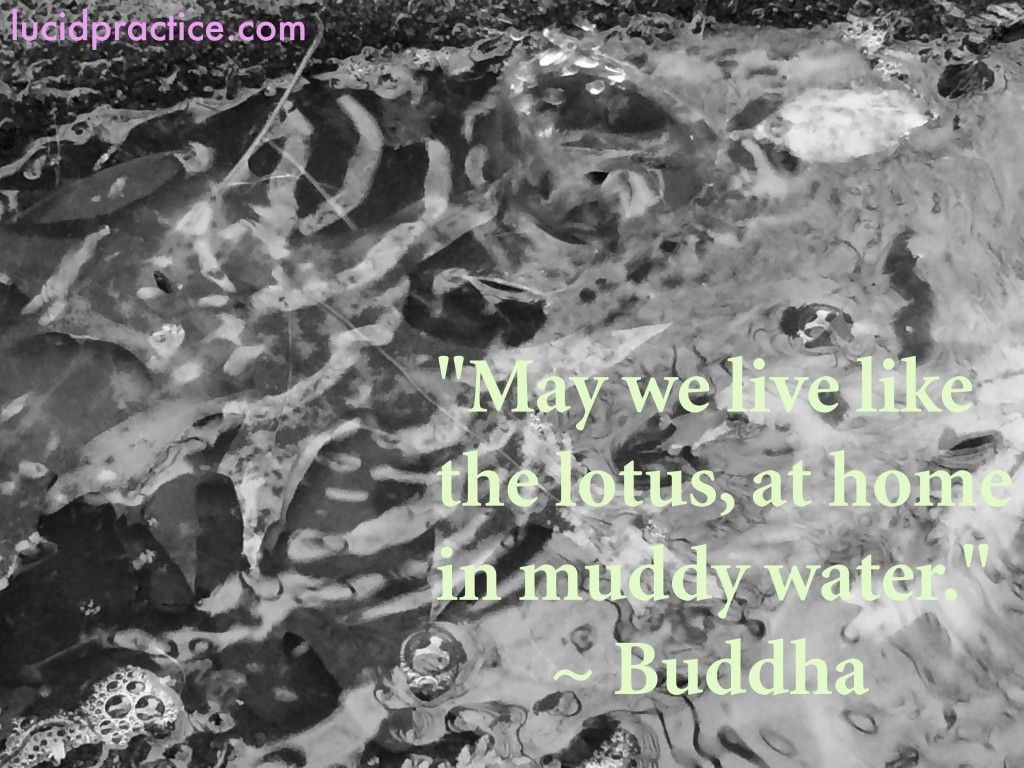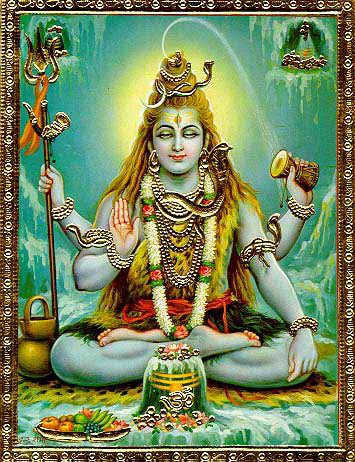Photograph by Danielle Lussier of Lucid Practice
Tag Archives: buddha
Hatred does not cease by hatred, but only by love; this is the eternal rule.
~ Buddha
“Three things cannot be long hidden: the sun, the moon, and the truth.”
~Buddha
“We are shaped by our thoughts; we become what we think. When the mind is pure, joy follows like a shadow that never leaves.”
~ Buddha
5 Ways to Achieve Wellness Through Mindful Eating
1. Eat at a table.
Ahh, the Western productivity obsession.
A desk at work does not count as a table. Nor does your car on the way to work. Scarfing down a sandwich while staring at a computer screen or racing through traffic ~ these are not lucid practices.
We’ve become so accustomed to multi+tasking that we unknowingly ditch mindful practices (such as eating) for the sake of productivity.
Keeping in mind the effects that meditation has on the brain, you’ll likely be more productive after a break from the computer and a mindful meal. Your brain will thank you for giving it a rest from the task at hand and you will have spurred creativity by engaging in a lucid lunch.
2. Pray before each meal.
It doesn’t matter if you’re Christian, Buddhist, Jewish, atheist, etc. The fact that you have a meal in front of you demonstrates how fortunate you are. By praying, you acknowledge your gratitude and center your focus on the food you’re about to eat.
3. Chew for presence and health. Can mindful eating save lives?
Pancreatic cancer is one of the most deadly diseases and it has been linked to not fully chewing food.
I recently read Living Buddha, Living Christ by Thich Nhat Hanh and in it he explained that monks usually eat in silence and chew each bite 100 times in order to appreciate their food and aid in digestion. We’re not suggesting that you go from thoughtless eating to monastic eating overnight, but it’s helpful to see just how devoted some practitioners are.
4. Eat food you’ve caught, grown, or hunted.
If you’ve ever eaten food from your own garden or from a friend’s garden, you can tell the difference. The average Western consumer has become so divorced with the source of their food, most of the time having no idea where or how their food was grown, caught, or killed (yes, if you eat meat or fish, the animal was killed.)
If you grow your own food, you have a better appreciation about the process of nurturing a crop. You’re likely to appreciate and be more present when eating something you’ve grown. Plus, if you grow your own food, you know that you’re not ingesting harsh toxins and pesticides whereas with store bought food, it’s anybody’s guess.
One of my favorite parts about eating in China was that the whole body of the animal was cooked and brought to us for each meal. Often times, we saw the live animal right before we ate it. This practice gives you a connection with the animal instead of the dehumanization that big poultry companies in the West adhere to.
An image of a delicious chicken dish Brian and I ate in a small village in Longsheng, China. Notice, the head and feet are in the dish, reminding us, “Yes, this is a real animal.”
It’s almost as if big poultry companies say, “Here’s a slab of meat, don’t think about where it came from.” Perhaps it’s a ploy to prevent consumers from considering the conditions in which the animal was raised and killed ~ but that’s for another post.
5. Turn off the TV and discuss your meal.
Most of us aren’t at the monastic point of eating in silence. Practically speaking, many of us eat meals with family and friends. Instead of zoning out and watching the news, sports, or a sitcom ~ engage in a conversation about your meal. Talk about the texture, flavor, temperature, quality, etc. You’ll become more in touch with your senses. You’ll find that this helps you learn about why you and your family and friends like certain food and perhaps this will help you try new things.
Mindful eating helps us with proper digestion, eating the right amount of food, the overall enjoyment of food, and learning and becoming more in touch with ourselves and others.
What’s your biggest challenge to eating mindfully? What mindful eating tips do you have for our readers?
Two Life Lessons from the Great Teachers
Two Life Lessons from the Great Teachers
Father Juan stood before the group speaking from the heart in a heavy but understandable Guatemalan accent. The topic was love and by the end of his homily, tears were rolling down my cheeks.
A traveler was walking from Jerusalem to Jericho and was attacked by robbers who stripped him and left him half+dead in the street. A priest and a Hebrew man passed by without helping him. But a Samaritan (at the time Samaritans were seen as society’s outcasts) stopped and cared for him, by taking him to an inn where he paid for the beaten man’s care and stay.
This is of course, the story of the Good Samaritan. Father Juan had an interesting interpretation. Everywhere we look, he said, there are those who represent the half+dead man in this parable. He pointed to the marginalized of society.
He encouraged us to consider suicidal individuals, racial minorities, women considering abortions, and orphans. There are people that need our help. Help them. Show love to the marginalized members of society without regard for the differences that may exist between you and them.
When Jesus told this parable, his message was simple: “Go and do as the Samaritan did.” Father Juan’s message in his homily, “We are all human beings. People need our help. Look into your heart. Go help.”
As I sat with my eyes tearing up and a smile across my face, I came to a conclusion: the more we study the great ancient teachers…. Jesus, Buddha, or the more recent greats…. Gandhi, Dalai Lama, and Nelson Mandela, the more we see that they are preaching two of the same lessons:
1. Love.
2. We are all one.
Has a spiritual passage, a homily, a teaching, or a simple conversation ever touched you in a similar way?
Is Yoga Spiritual? Is Yoga Religious?
Is Yoga Spiritual? Is Yoga Religious?
Is yoga spiritual? Is yoga religious? It depends on who’s practicing and who’s teaching.
Everyone’s practice is different. One person’s practice might be deeply spiritual or religious while another person’a practice is the opposite. In the West, we’re so quick to put titles and labels on things as if once we’ve labeled something we truly understand it.
What is Yoga?
In sanskrit, the word yoga means union. When we practice yoga, we are creating a union between the body, mind, and breath.
Yoga as a Science
Our teacher, Rory Trollen, described yoga as a science where you are the scientist and the lab. Rory explained there are simple, valid ways of finding out why one day you wake up feeling happy or sad.
Rory taught us that yoga does not require belief or faith, just practice.
In the last two or three decades, when yoga was introduced to the modern world, it was received with some skepticism. At first people thought that it was another religion. But in spite of this young people took up yoga and soon others began to notice its amazing effects. Then the psychologists, medical doctors, criminologists, and philosophers started making investigations and they were surprised to find that yoga is not a religion but a science. ~Swami Satyananda Saraswati
Yoga as a System
Patanjali said that, “Yoga is the cessation of the fluctuations of the mind.” This does not make the practice inherently religious, instead it is a system to live a more present, intentional life.
The system of yoga helps you cultivate inner awareness. For example, as you advance your practice, you’ll be able to more easily change your mental state. You’re less likely to be a slave to the 80,000 thoughts that the average human has each day.
Yoga as a Spiritual Practice
Some see yoga as a union between their being and the universe. If this is your interpretation, then perhaps yoga is a spiritual practice for you. Dr. Larry Dossey, a leader in the field of spirituality, describes spirituality as “a sense of connectedness with something greater than oneself.”
“Yoga is an aid to the practice of the basic spiritual truths in all religions. Yoga is for all, and is universal.” ~Swami Sivananda Saraswati
Do I need to be Hindu or Buddhist to Practice?
Although historical roots dating back 4,000 years show that yoga comes from Hinduism, one does not need to be Hindu to practice. There are similarities in yogic principles and the religions of Hinduism, Buddhism, Christianity, and Judaism although one need not prescribe to any particular religion in order to practice.
Yoga is not Hindu, it is not Mohammedan. Yoga is a pure science just like mathematics, physics or chemistry. Physics is not Christian, physics is not Buddhist. If Christians have discovered the laws of physics, then too physics is not Christian. It is just accidental that Christians have come to discover the laws of physics. But physics remains just a science. Yoga is a science—it is just an accident that Hindus discovered it. It is not Hindu. It is a pure mathematics of the inner being. So a Mohammedan can be a yogi, a Christian can be a yogi, a Jaina, a Buddhist can be a yogi.” ~Osho
Is yoga a sin?
If you’re so inclined, yoga can be interpreted as a merging between you and whatever God you believe in. So, in Judeo+Christian circles, how could becoming closer to God possibly be considered a sin?
If you want to become closer to your source or to God, yoga can help. Yoga helps remove external stimuli that serve as a detriment to truly connecting with ourselves, God, the Universe and other people.
Is yoga spiritual? Is yoga religious? My experience
Yoga enhances my religious practice and helps me to become a better person. As someone of Catholic faith, I’ve found that yoga has helped bring me closer to God, Jesus, the Universe, my family, my friends, and everything and everyone around me. If that makes my practice a religious practice in the eyes of others, then so be it.
Why the questions of “Is Yoga Spiritual? Is Yoga religious?” are relevant today
Mostly because of ignorance, fear and egos of people who do not understand yoga but feel threatened by it. Also, people who get tied up in their incessant need to label things.
Conclusion on yoga’s relationship to spirituality and religion
Yoga can be religious. Yoga can be secular. You don’t have to apply a title to your practice. Your practice is whatever you want it to be.
It is clear, however, that what separates yoga from gymnastics or stretching is the union. The union between mind, body, breath and something bigger whether it be God or the Universe.
With the rise of technological addictions, external stimuli overload, and advertisement bombardment in the West, it seems a connection to something bigger that ourselves is exactly what we need.
You do not need to be religious to practice yoga although you might find that yoga leads you down a spiritual path that you never considered possible.
In your practice, is yoga spiritual? Is yoga religious?
6/18 Quote: Siddhārtha Gautama
“All that we are is the result of what we have thought.”
-Siddhārtha Gautama (Buddha)



